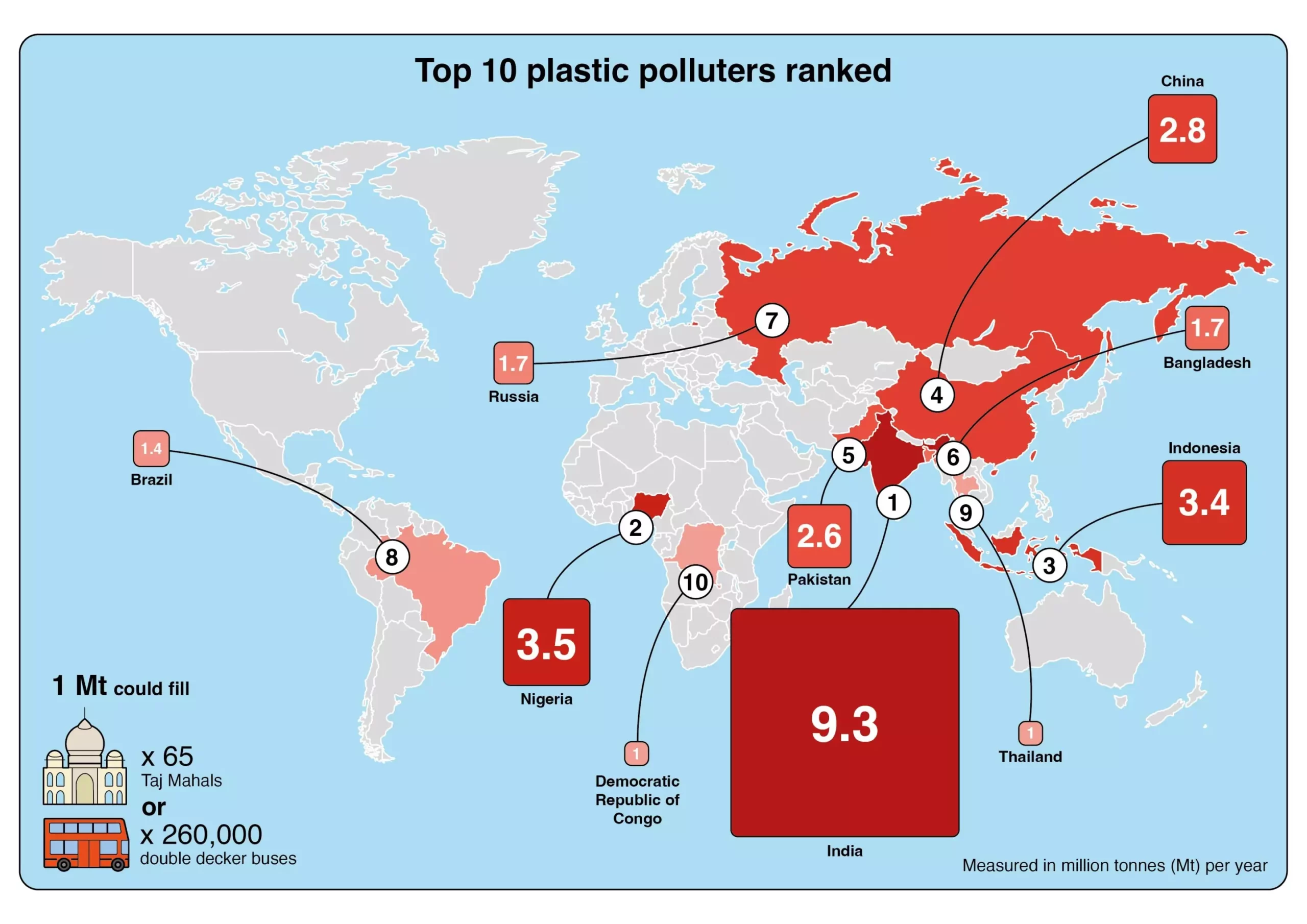The growing plastic pollution crisis is a pressing issue that the world can no longer ignore. A recent groundbreaking study conducted by researchers from the University of Leeds reveals alarming statistics about global plastic waste and its impact on the environment and human health. By employing advanced artificial intelligence (AI) to analyze waste management practices across over 50,000 municipalities worldwide, this research not only quantifies the amount of plastic waste generated but also underscores the multifaceted challenges posed by inadequate waste management systems. With over 52 million metric tons of plastic entering the environment in 2020 alone, it is crucial to understand the origins and implications of this crisis to initiate effective solutions.
The staggering figure of 52 million metric tons of plastic waste generated in 2020 highlights the enormity of the problem. This amount is akin to a line of waste that could wrap around the Earth’s circumference over 1,500 times. However, the research exposes an even more distressing reality: more than two-thirds of this pollution stems from uncollected waste, affecting approximately 1.2 billion individuals—15% of the global population—who lack access to reliable waste collection services. This situation is further exacerbated by the practice of burning plastic waste, which contributes about 30 million metric tons—57% of total plastic pollution—into the environment, often without any environmental controls. The implications of open burning are severe, as it poses significant health risks tied to neurodevelopmental issues, reproductive health, and even birth defects.
The analysis not only sheds light on the global landscape of plastic pollution but also shifts traditional perceptions regarding the biggest offenders. Contrary to previous assumptions that China was the world’s largest source of plastic pollution, this study identifies India as the leading contributor, followed by Nigeria and Indonesia. This shift is indicative of broader trends in waste management efficacy and infrastructure development. Countries with well-organized waste management systems—often found in the Global North—exhibit far lower rates of macroplastic pollution, primarily caused by littering. In contrast, nations in the Global South, particularly many in Sub-Saharan Africa, are facing a growing crisis due to their inadequate waste management systems, exacerbated by rapid population growth.
The public health ramifications of plastic pollution cannot be overstated. Unmanaged plastic waste poses threats to the health of communities—particularly those in low-income regions—who often rely on rudimentary methods for waste disposal. Research fellow Dr. Josh Cottom emphasizes that those living in such conditions are left with no choice but to self-manage waste through dumping or open burning, leading to hazardous environments and significant health concerns. The study argues that addressing basic waste management, akin to essential services like water and sanitation, is critical to mitigating plastic pollution and enhancing the overall quality of life for vulnerable populations.
With more than 400 million metric tons of plastic produced annually, the need for innovative solutions becomes even more urgent. Researchers advocate for a multi-faceted approach that includes improving waste collection systems, investing in recycling technologies, and promoting circular economy practices. They propose establishing a global “Plastics Treaty” as a binding policy framework to address the root causes of plastic pollution. This treaty would empower countries, especially those with historically tenuous waste management infrastructures, to devise national strategies that not only curb plastic emissions but also promote sustainability and resource recovery.
The recent inventory of global plastic pollution offers valuable insights and a crucial baseline from which policymakers can operate. As Dr. Costas Velis articulates, “This is an urgent global human health issue.” With a clearer understanding of plastic waste’s origins, impacts, and predominant sources, there is an opportunity to take substantial steps toward combating this pervasive crisis. Addressing the underlying issues of waste collection and management is not merely an environmental imperative but a humanitarian one, crucial for safeguarding public health and ensuring a sustainable future for the planet. As the world strives for balance between consumption and environmental stewardship, consider this an urgent call to action—it’s time to prioritize the planet and the people who inhabit it.


Leave a Reply